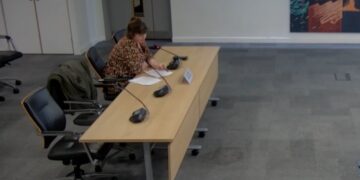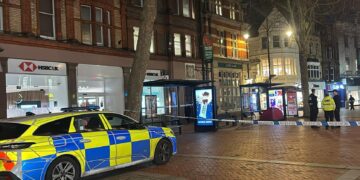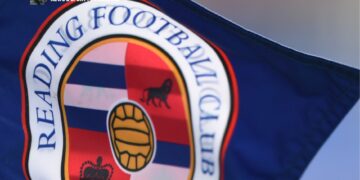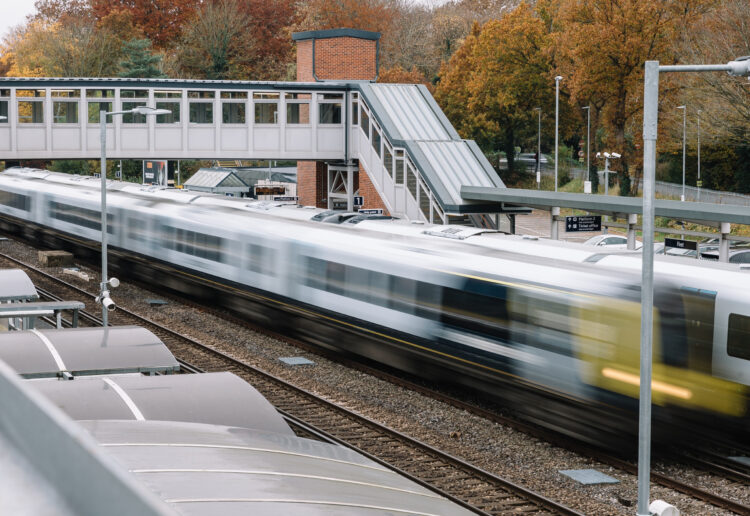NETWORK Rail and the British Transport Police have launched a campaign aimed at addressing a rise in unsafe behaviour around the rail network.
Two new safety films explore the experiences of first responders and the devastating physical and emotional impact of railway accidents.
Working with the emergency services and film industry professions, the films show the real consequences of unsafe behaviour through the experiences of those who witness the aftermath.
One explores the emotional impact on families when loved ones have been badly injured on the railway, while the second features an NHS trauma specialist explaining the catastrophic injuries caused by getting hit by a train.
With the summer holidays approaching, the campaign urges everyone to stay off tracks, observe warning signs, and use level crossings safely–particularly highlighting the dangers of distraction from mobile phones when around the railway.
Nationally, Pedestrians were involved in 457 of the 467 near misses with trains at level crossings last year; research by Network Rail has revealed that distraction by mobile phones is likely to be a contributing factor in some of those events.
Twenty-four people lost their lives in preventable accidents on the railway last year – a five-year high. Five of those lives were lost at level crossings, while the other 19 were a result of crossing the railway at unauthorised locations.
As well as the risk to lives, safety incidents involving the public have a serious impact on train performance.
Last year in excess of a million minutes of delays to train services were caused as a result of people straying onto the railway tracks.
Paul Langley, Head of Security, Crime and Resilience, Southern Region at Network Rail said: “If you are using the railway, you have to be fully alert to your surroundings. Every fatality on the railway is a tragedy and the main focus of our work is to ensure that our railway is safe for staff, passengers, pedestrians and road users that come into contact with the network.
“Unlike a human that can stop abruptly while walking, trains need the length of several football pitches to come to a stop. Only cross the railway at safe locations and, when doing so, remove all distractions so you can stop, look and listen. Only when you have determined that it is safe to cross, should you do so and you should cross the railway efficiently and safely.
“The Southern region is powered by the electric ‘third’ rail and it is always on. If you come into contact with the electric rail it will hold you in its grip and cause death or severe injury. It is just not worth the risk.
Priti Patel, Chief Health, Safety and Wellbeing Officer at Network Rail said: “These figures are deeply concerning and it is heartbreaking to know that twenty-four people did not make it home due to circumstances that were entirely preventable.” Every one of these deaths is a tragedy that devastates families and communities.”
“All we ask is that people ensure that they pay attention when they find themselves in a rail setting. Only cross at safe, designated locations such as bridges or level crossings and when you are using them, give them your full attention.
“The situations shown in our campaign films are real. Please don’t let them become true for you or your loved ones.”
Chief Inspector Adam Swallow, British Transport Police, added: “Every year, my emergency services colleagues and I are faced with the awful consequences of preventable railway accidents. And we don’t just respond, we remember too.
“Behind every statistic is a real person – a life needlessly lost or irreversibly changed and a family left devastated.
“The number of near misses is a stark reminder about why this campaign is so vital. These films are grounded in real-life experiences and show the terrible impact of a moment’s distraction or misjudgement.
“As the summer holidays begin and more people are out and about, including teenagers and younger children, we’re asking everyone to treat the railway with the seriousness and respect it demands; stay alert, avoid distractions, and never cross except at designated points. It could save your life, or someone else’s.
“I’d encourage people to save 61016 into their phones and text us if they need us. In an emergency always dial 999.”
Jane Lupson, Safety and Security Director at South Western Railway, commented: “It’s shocking and saddening to see the rise in accidental deaths and the number of near misses across the network–each of these deaths is a tragedy and leaves loved ones devastated.
“Safety is always our number one priority, and we hope these powerful new films will serve of a stark reminder of how serious the consequences of trespass and distraction can be.
“We urge everyone to always remain alert while on the network, particularly at level crossings and around the electrified third rail.”
























